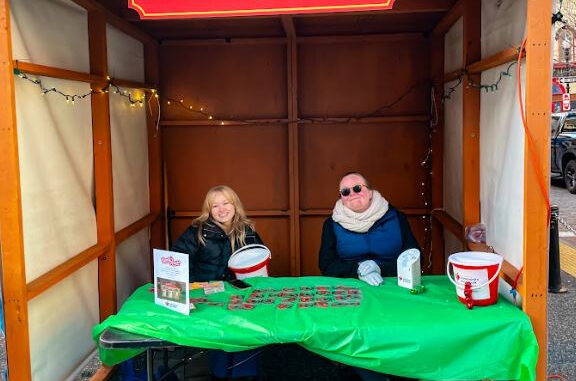
Maxwell Marcello | Staff Writer
This past fiscal year saw Greater Pittsburgh Community Food Bank distribute more meals than it did during the height of the COVID-19 pandemic and is reaching levels not seen since the 2008 financial crisis.
Although food insecurity is a year-round problem that needs remedy, the holiday season ushers in additional challenges. Despite advocates helping to address the serious problems of food insecurity, 2023 is shaping up to have an abnormally high demand.
Vice President of Marketing & Communications for the Greater Pittsburgh Community Food Bank Brian Gulish said that the Pittsburgh area, specifically, is seeing a steady rise in requests made to the food bank.
“In the past three months we’ve distributed 6% more food (total pounds) than the same time last year. This fall we are averaging approximately 1,800 calls per month to our call center. Last year we received more than 18,000 calls, which is a 12% increase over the prior year,” Gulish said.
The holiday season in years past has exacerbated the demand, and this year is no exception.
The United States Department of Agriculture released a report earlier this month that showed the number of people living in food insecure households nationally during 2022 increased to 44 million.
The report also concluded that 7.3 million children live in food insecure households. This constitutes a 31% increase for all individuals and 44% for children from the previous year, the highest rate and number of individuals and children since 2014 and the largest one-year increase in food insecurity since 2008.
Working to reduce stigma and keeping up with demand have been the food bank’s top priorities, while providing the food itself largely falls to the agencies, partners and individuals that collaborate with the food bank.
People’s Gas is a partner of the food bank and a long time sponsor of the annual Christmas market in Downtown Pittsburgh.
People’s Market Square Holiday Market has been in operation since 2008 and has become a holiday tradition for many. This year’s holiday market offers attendees the chance to get a special Christmas ornament if they donate to the food bank.
“This is the first time we’ve created a custom, souvenir ornament. We provided 5,000 ornaments to the food bank for the season, and with that, a commitment to match the first $5,000 donated to GPCFB during the People’s Gas Holiday Market. We also contributed $25,000 to the Food Bank this year, separate from the matching gift to provide support for programs that increase accessibility like refrigerated food lockers,” said Nicholas Paradise, External Communications Manager for People’s Gas.
Food insecurity at Duquesne has spurred students and faculty into action as well. Amber Kolesar, a professor of nursing, in charge of the School of Nursing mini pantry. The initiative began in 2022 with mostly canned goods before expanding into more substantive meals.
The holiday season can be extremely difficult for students as other expenses create uneasy decisions; either buying a gift for someone special or eating. Food insecurity activists like Kolesar want students to know there are resources for those who are struggling and implore the student community to work on reducing the stigma around those asking for help during the holiday season.
Kolesar noted that food insecurity can have a ripple effect on students.
“Food-insecure students are more likely to have a lower GPA than their food-secure peers. In addition, food security is a social determinant of health as a nurse, this is paramount. There is an incredible amount of research that links food insecurity with depression, anxiety, poor sleep and even chronic health conditions such as diabetes and hypertension,” Kolesar said.
Duquesne’s Residence Hall Association and the Migration Club are also holding a food drive for unexpired food items only. Each of the donations goes directly to the Mcnulty Food Pantry.
Jennifer Zgurich, director of Corporate and Community Giving at the Greater Pittsburgh Community Food Bank, noted the emotional impact holiday timing has on those who are food insecure.
“So much of the holiday celebration is surrounded with food. The image of gathering with your family around this large meal, there is a lot of pressure, guilt and insecurity. It can be very isolating,” Zgurich said. “So many families are facing food [insecurity] throughout the year, the feeling of not being able to provide feels that much worse.”

